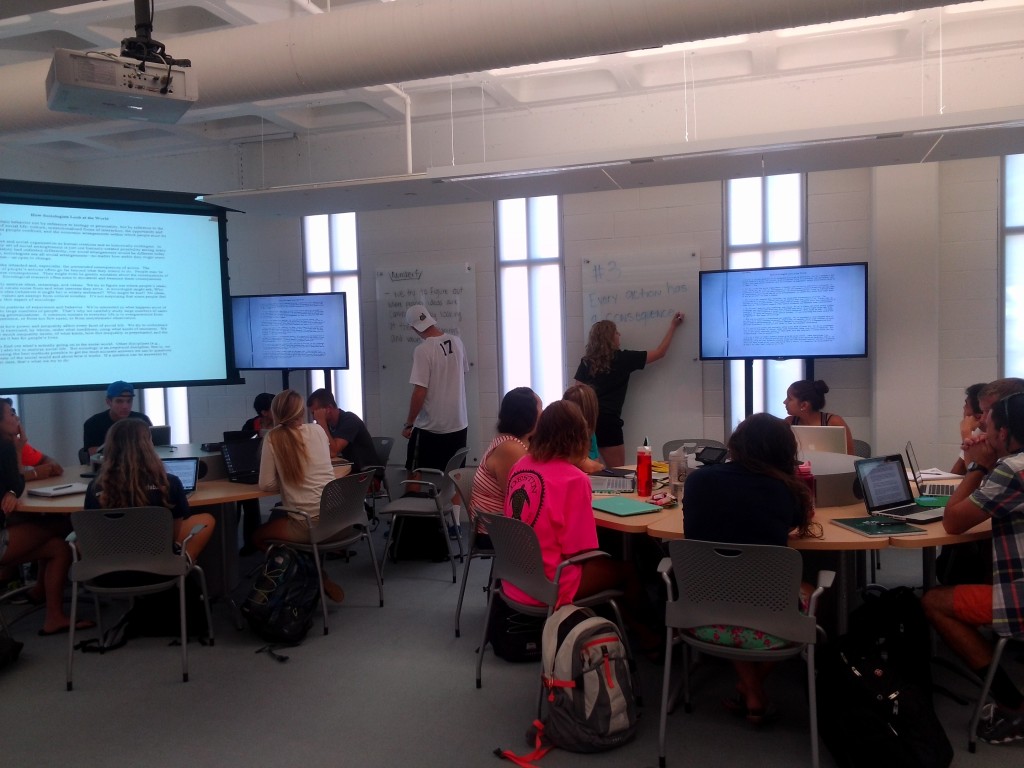|
Listen to this post
Getting your Trinity Audio player ready...
|
I have been low-level upset at recent discussion about the need for higher education institutions to respond to student expectations. I had a bit of a rant about it on Twitter, for instance.
https://twitter.com/DonnaLanclos/status/606424179185991680
https://twitter.com/DonnaLanclos/status/606424499437903872
https://twitter.com/DonnaLanclos/status/606424716577021952
https://twitter.com/DonnaLanclos/status/606425124586291200
https://twitter.com/DonnaLanclos/status/606425283932102656
I was tweeting in an apprehensive way about “Student expectations” on the same day that there was a great deal of conversation going on about the death of tenure at Wisconsin universities, and the implications for higher education labor conditions and teaching and learning in that context.
What’s Gone Wrong in Wisconsin? http://t.co/txPUoKUukC
— Jesse Stommel (@Jessifer) June 4, 2015
And then the next day I started thinking about the problem of tying perceptions of effective education to “comfort” or “satisfaction” (other ways of talking about meeting student expectations).
https://twitter.com/DonnaLanclos/status/606909570083102724
https://twitter.com/DonnaLanclos/status/606910095038009344
https://twitter.com/DonnaLanclos/status/606910339490443266
https://twitter.com/DonnaLanclos/status/606910525994377216
https://twitter.com/DonnaLanclos/status/606910525994377216
https://twitter.com/DonnaLanclos/status/606912620562685954
https://twitter.com/DonnaLanclos/status/606912924922355712
https://twitter.com/DonnaLanclos/status/606914225169154048
https://twitter.com/DonnaLanclos/status/606915287116595201
I am seeing the connection between concern about “Student experience” and “Student expectations” as driven by these capitalistic, marketing framed approaches to education and how we decide what we should be doing for our students. And I am distressed that “experience” and “expectation” seem to be edging out “education” as what we want Universities to be focusing on.
But, what about University expectations for their students? What about educator-driven desires for their students? What is our responsibility, given what we know students should be doing to become constructive citizens? To what extent should we limit ourselves to or be driven by what is “expected” to be “experienced” by our students? And what about linking the larger “experience” of others at university, of faculty and staff, of researchers and teachers–how can we make visible those experiences, and make it clear that those people and their work are crucial parts of educating students.
https://twitter.com/DonnaLanclos/status/604261934511362048
Student expectations are informed by their pre-university experiences. And those are not uniform. We have students with a variety of levels of experience and preparedness for what university education requires. And we do not, as educators, have to buy the argument that the purpose of our work is to prepare students for “jobs.” Our work, collectively, in higher and further education, is to provide students with experiences and support within those experiences to learn, to grow, to find and shape their voice, to be prepared to exercise citizenship, to live engaged lives, to shape their world in constructive ways.
I see people around me writing around this sort of concern, for example most recently Dave White, Peter Bryant, and Lindsay Jordan. So, I’m glad I’m not alone. But these concerns need to filter up, to become more a part of the conversation happening in policy and political areas around education. We cannot continue to allow operational, transactional assumptions about “expectations” and “experience” to rule the day, and ruin the processes of “education.”
